The Impostor
Cast & Crew
Julien Duvivier
Jean Gabin
Richard Whorf
Allyn Joslyn
Ellen Drew
Peter Van Eyck
Film Details
Technical Specs

Synopsis
Clement, an unrepentant murderer, narrowly escapes the guillotine when a German bombing raid levels the prison in Tours, France. As the Nazis march on Paris, Clement joins some soldiers leaving the French capital to regroup in the south, and soon after, a German plane bombs their truck, killing most of the men. Clement steals the uniform and papers of Sergeant Maurice LaFarge, then assumes the dead soldier's identity. Along with the remains of the defeated French army, Clement arrives in the seacoast town of St. Jean De Luz, where he boards a freighter bound for Dakar, along with soldiers Bouteau, Hafner, Cochery and Monge. Learning that DeGalle is organizing a new army, the soldiers, led by Lieutenant Vareene, asks the captain to re-route the ship. The freighter then lands at Pointe Noire, in French Equatorial Africa, where the soldiers enlist in the Free French Army. Clement continually searches for ways to escape his new unit, but is soon promoted to adjutant by Vareene. The soldiers then head up the Congo on a steamship to Bangui, where they join a troop convoy and travel into the jungles of North Africa. Because of Hafner's expertise, the unit is ordered to set up a radio outpost, rather than join the troops fighting farther north in Libya. With no contact with the outside world other than radio reports and an occasional air shipment, the soldiers soon begin to get on each other's nerves. Vareene contracts jungle fever, and in a fit of madness, accidentally shoots Monge. To raise the spirits of the recovering Monge, the soldiers stage a Christmas celebration, during which they also express their gratitude to Clement for his leadership during Vareene's illness. After four months, the unit, except for the wounded Monge, is ordered to Brazzaville, and Clement is promoted to 2nd lieutenant. Along the way, they are attacked by a German patrol and assumed dead, but only Hafner is killed. While the three enlisted men return to their jungle outpost, a wounded Vareene is taken to the military hospital, where he meets Clauzel, a good friend of the real LaFarge. Clement, in the meantime, is decorated for his heroism and promoted to 1st lieutenant. Later, Yvonne, LaFarge's fiancée, arrives at the jungle outpost to visit her beloved, only to find Clement. The fugitive confesses all to her, but, after learning about Clement's bravery from his comrades, she decides to keep his secret. A celebration is then held at Fort Lamy to commemorate the first anniversary of Free French Army, honoring heroes like Clement. Clauzel is there as well, and recognizes the fugitive. He tells Vareene all, but the lieutenant refuses to do anything until Clement finds him and insists on confessing. During his courtmartial, Clement refuses to reveal his true identity, and is defended by Vareene, who points out his feats of heroism and rebirth of spirit. Clement is then stripped of his rank, demoted to private and sent to the Libyan front. There, Clement distinguishes himself one final time by sacrificing himself to destroy a machine-gun nest.

Director

Julien Duvivier
Cast

Jean Gabin

Richard Whorf
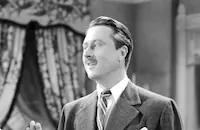
Allyn Joslyn

Ellen Drew
Peter Van Eyck

Ralph Morgan

Eddie Quillan

John Qualen

Dennis Moore
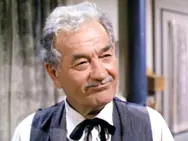
Milburn Stone
John Philliber

Charles Mcgraw
Otho Gaines
John Forrest
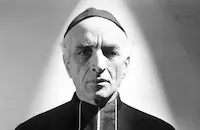
Fritz Leiber

Ian Wolfe

William Davidson
Frank Wilcox
Warren Ashe

Peter Cookson
Leigh Whipper
Ernest Whitman
Grandon Rhodes

George Irving
Jackie Lou Harding
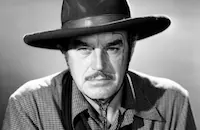
Harry Woods
Paul Phillips
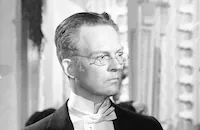
Don Dillaway
John Harmon
George Lynn
George Lewis
Clarence Straight
Anthony Warde
Lester Dorr
Jack Gardner
Carlyle Blackwell
Robert Appel
Phil Warren
Alain Bernheim
Norman Rainey
George Cory
John Whitney
Eddie Coke
Mel Schubert
John Meredith
Martin Ashe

Harry Cording
Franklin Parker
Earle Dewey

Emmett Vogan
Guy Kingsford
James Dodd
Leslie Vincent
Barry Bernard
Rex Lease
George Eldredge
Cyril Delevanti
Don Mcgill
Arthur Stenning
William Hudson
Paul Zaremba
Charles Sherlock
Crew
Don Brodie
Bernard B. Brown
John Carter
Marc Connelly
Julien Duvivier
Julien Duvivier
John P. Fulton
R. A. Gausman
John B. Goodman
Franz Gruber
Paul Ivano
Paul Landres
Stephen Longstreet
Eugene Lourie
Joseph A. Mcdonough
Joseph Mohr
E. R. Robinson
Jean De La Roche
Claude Joseph Rouget De Lisle
Lynn Starling
Dimitri Tiomkin
Vera West

Film Details
Technical Specs

Articles
Ellen Drew, 1914-2003
She was born Esther Loretta "Terry" Ray on November 23, 1914, in Kansas City, Missouri. The daughter of a barber, her family moved to Chicago when she was still an infant and she lived a very quiet childhood far removed from the glamour of Hollywood. She was encouraged by some friends to enter a beauty contest when she was just 17. After winning, she tried her luck in Hollywood, but found that they were no immediate offers for her particular talents.
She eventually took a waitressing job at C.C. Brown's, a famed Hollywood Boulevard soda fountain, and had virtually abandoned her dreams as a starlet when William Demarest, a popular actor's agent and well-known character actor, spotted her. Demarest arranged a screen test for her at Paramount, and she was promptly placed under contract for $50 a week.
For the first few years, (1936-38), Drew got only bit parts, and was often uncredited. When she finally got prominent billing in the Bing Crosby musical Sing You Sinners (1938), she decided to change her name, from Terry Ray to Ellen Drew. She earned her first major role in Frank Lloyd's If I Were King (1938) opposite Ronald Colman, yet for the most part of her career, rarely rose above "B" material and second leads. Still, she had some fine exceptions: Preston Sturges' enchanting comedy Christmas in July (1940), with Dick Powell; Tay Garnett's lighthearted war romp My Favorite Spy (1942) co-starring Kay Kyser; Julien Duvivier's taut The Imposter (1944), holding her own with a brooding Jean Gabin; and Mark Robson's chilling low-budget chiller Isle of the Dead (1945) opposite Boris Karloff. Drew made some notable television appearances in the late '50s including Perry Mason and The Barbara Stanwyck Show, before retiring from the entertainment industry. She is survived by her son David; five grandchildren; and five great-grandchildren.
by Michael T. Toole

Ellen Drew, 1914-2003
Quotes
Trivia
Notes
The working title of this film was Passport to Dakar. Allyn Joslyn was borrowed from Twentieth Century-Fox for the production. The viewed print bore the title Strange Confession, which was a television release title.














